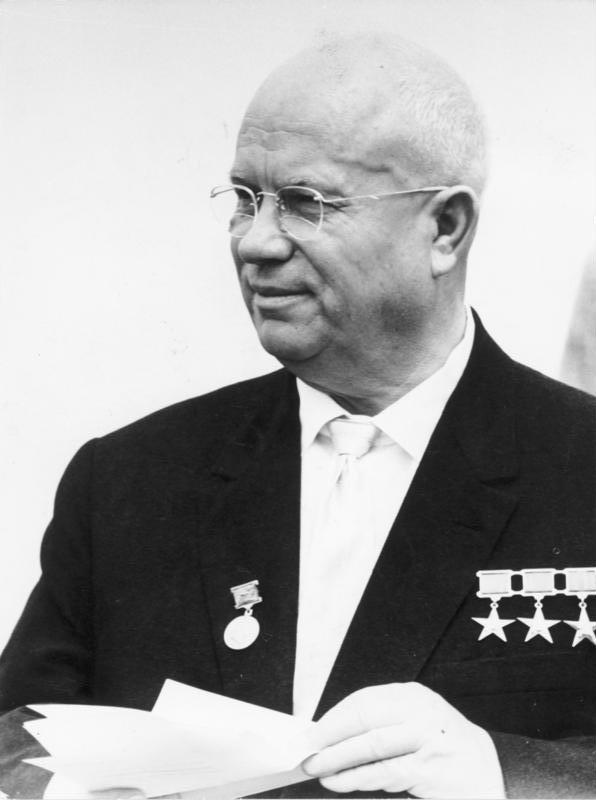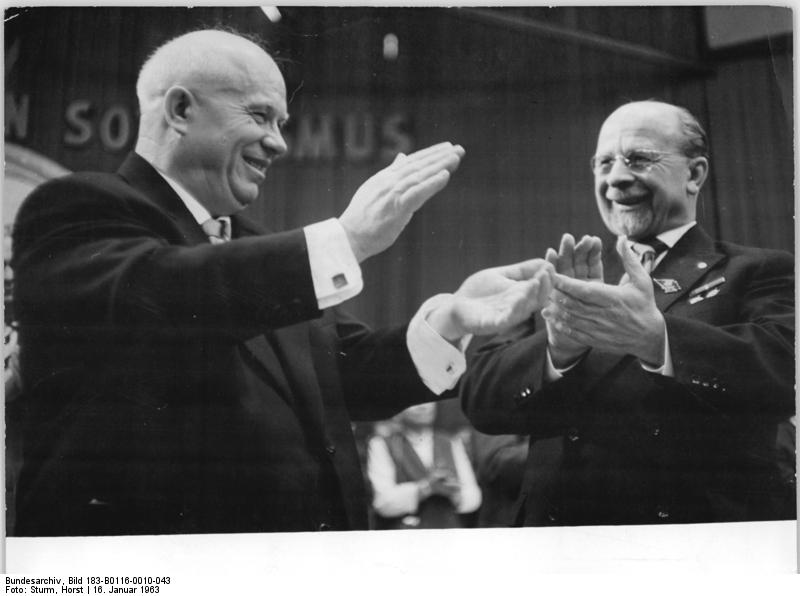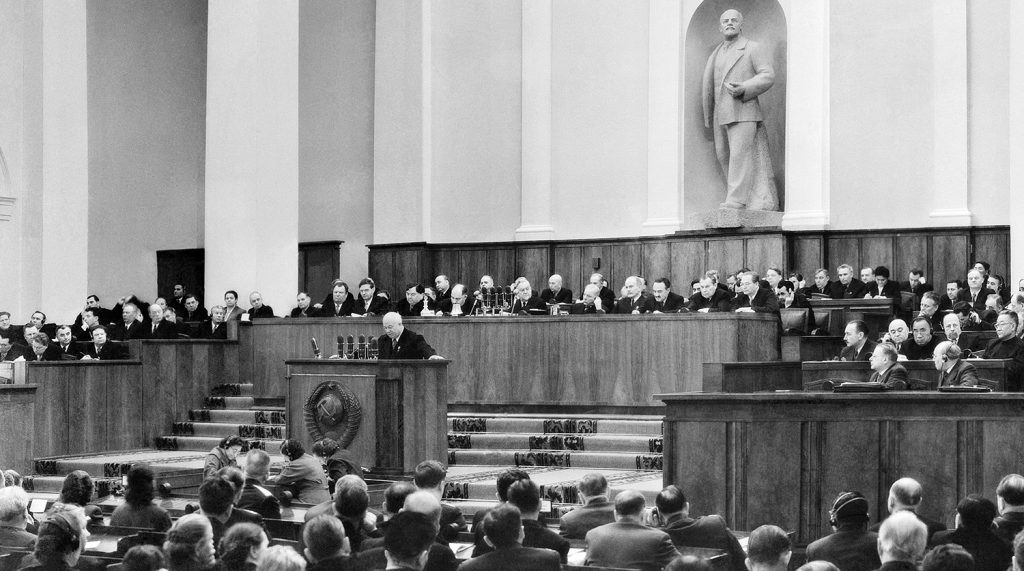
Nikita Khruschev in East Berlin in June 1963 (Wikimedia/CC BY-SA 3.0 de)
Nikita Khruschev held a meeting on November 4, 1956, with CPSU party activists. He considered it very important to brief his comrades about the situation. Therefore, describing thoroughly all the events that happened recently was a natural solution. The purpose of the meeting was to give information about the state of affairs in Hungary and other issues associated with it. With the exception of members of the Central Committee and different government institutions, all ministers who weren’t CC members were also invited. That’s how important the meeting was and the speech Khrushchev gave was a confirmation of his power. Therefore, his speech confirms he remained a commanding persona even after the crisis.
The Preservation of Socialist Achievements
Khruschev started his speech by describing the events that developed in Hungary emphasizing: “A new government was formed in Hungary and Imre Nagy, a Communist and, it needs to be said, an old Communist, became head of it.”
So, it’s interesting how he tried to pique the interest of the listeners by talking about the counterrevolutionary groups: “Among the rebels, they say, there were even Communists, part of them were workers who had been deceived, and many were students. They say that the organizer of this affair was some sort of engineer; some say that this engineer had been an officer in the Hungarian Army at one time and was even a Communist expelled from the Party at one time.”
They say? Even Communists? Engineers? Officers? Many options were on the table. One thing is for sure. Nikita Khruschev caught his audience’s attention right from the start. So, using a combination of many possibilities that provoke negative sentiment, he got them, in the beginning, to “preserve socialist achievements in Budapest.”

Other Socialist States
Nikita Khruschev was deeply concerned the events would spread to other Socialist countries from Hungary. It was quite tricky to say this and not lose authority. “There was no doubt of military success, because our superiority goes without saying. But another aspect worried us: the overall international situation. What also worried us was how our actions would be understood in the countries of the socialist camp and how they were assessing the situation that had been created.”
Therefore, the USSR was powerful in the military sense, but there was another thing to resolve. If the problem spread to the other socialist states, these governments wouldn’t let the Soviets on their territory so easily. Who knows, maybe a different course of events would change the rest of the Cold War history.
European Socialism
To preserve European socialism, but also socialism on the other continents, Nikita Khruschev wanted to consult the leaders of the countries of the “socialist camp.” The situation escalated in Hungary, but another potential problem was Poland where the events “were alarming,”. Therefore, it was necessary to overcome the obstacles and maintain friendly relations.
Khruschev had a firm attitude towards Hungary. He didn’t want to lose it. The Chinese had the same opinion. Losing influence in Hungary would be “a colossal loss”. The Polish representatives agreed the government of Imre Nagy didn’t go in the right direction, but also the Soviets should stay away from the intervention in Hungary. Therefore, the agreement wasn’t reached, but the Polish leaders showed their attitude.
Talks with Romanian leaders went smoothly. They proved once again as loyal allies and even offered their assistance in military matters. Bulgarian leaders were even very excited about crushing the counterrevolutions in Hungary. “Evidently you will introduce your troops into Hungary and it means that the counterrevolution in Hungary will be halted and defeated.” they said.

In addition, everything was incognito in Yugoslavia. The plane arrived in Pula for the night. Although the Yugoslav leaders were indifferent in the beginning, they agreed it was the counterrevolution in Hungary. There were differences between the two delegations. But, according to the Soviets, one thing they had in common was that it was very dangerous for Yugoslavia to have a border with a capitalist country. So, they accepted the fact the action needed to be taken. Therefore, these three countries were (more or less) loyal supporters of the cause, Nikita Khruschev’s pillars of European socialism. Consequently, he could be sure the Soviet position behind the Iron Curtain was still firm. His speech confirms that fact.
Ivana Tucak

One thought on “How did Nikita Khruschev Maintain His Control Behind the Iron Curtain?”